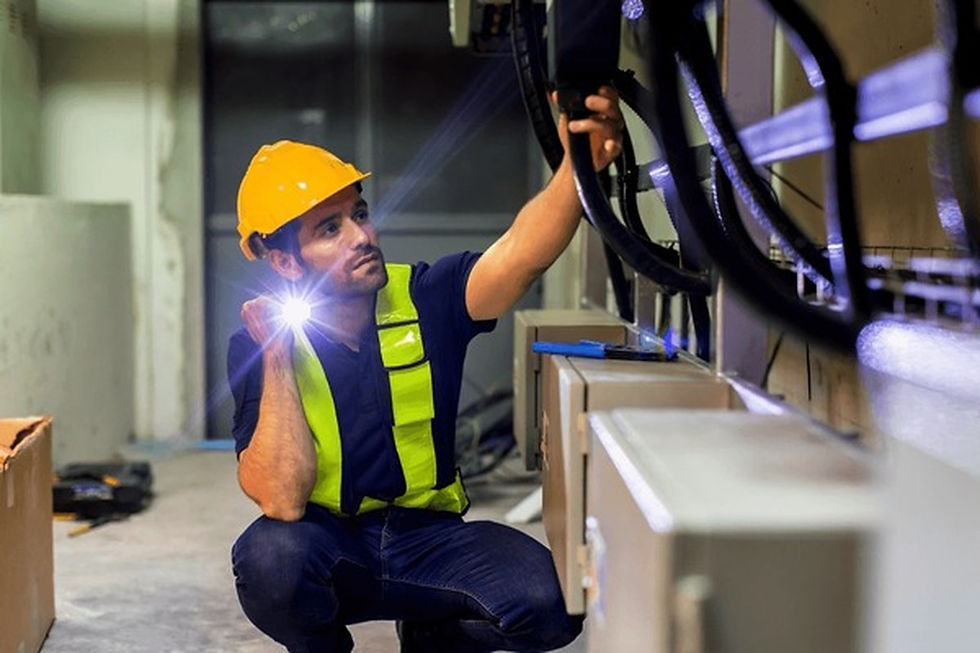What to Expect When You Hire an Emergency Plumber
- kristinannieblog
- Oct 11, 2025
- 4 min read

Life is often characterized by its unpredictable nature, and plumbing emergencies are no exception. Burst pipes, severe leaks, sewer backups, and gas leaks can strike without warning, leaving homeowners scrambling for a quick and reliable solution. Navigating through these unexpected crises can be tough, especially if you're unsure of what to expect when hiring an emergency plumber. To ensure your plumbing crisis is handled effectively, promptly and without stress, this guide will walk you through various aspects of hiring an emergency plumber, from understanding plumbing emergencies to knowing what to expect in terms of cost and procedure.
Understanding Plumbing Emergencies
Plumbing emergencies come in various forms, each with potentially disastrous effects if not promptly addressed. Burst pipes often cause severe water leakage, which may lead to significant water damage to furniture, walls, and flooring. Blocked or backed up sewage systems can leak toxic waste material within or around your home, creating grave health hazards. Gas leaks, albeit less common, carry an immense risk of explosions and fires.
Understanding these emergencies, their causes and potential impact, is crucial. Delayed intervention often exacerbates the situation, leading to higher repair costs and extensive property damage. Therefore, it is vital to be vigilant and take immediate action when you notice signs of a plumbing emergency to help preserve your home's structural integrity and your family's health.
When to Hire an Emergency Plumber
Knowing when to call a professional plumber is just as critical as understanding different types of plumbing emergencies. Visible indications of a severe leak, such as water pools or damp walls and floors, warrant immediate professional attention. Additionally, the unpleasant odor of sewage or the presence of waste materials signalling a sewage backup should have you dialling a professional pronto. Gas leaks may not be as easy to detect, but if you smell a strong odor of rotten eggs or hear a hissing sound, evacuate your home immediately and call a professional.
Another common sign that screams plumbing emergency is a loss of hot water supply, especially during cold months. While experiencing any of these emergencies may be alarming, having an emergency plumber's number at hand can provide some peace of mind.
Choosing an Emergency Plumber: Things to Consider
Not all plumbers specialize in handling emergencies, so your choice of plumber should reflect the nature of your plumbing crisis. Check for credentials and ensure the plumber is certified to handle the type of emergency at hand. Long-standing experience in handling similar emergencies is also a plus. Crucially, verify that the plumber carries adequate insurance coverage to safeguard against any potential damage that might occur during the repair process.
Customer reviews should not be overlooked, as they form a past performance indicator constituting an element of trust and professionalism. Always strive to balance cost versus quality of service, understanding that cheap is not always the best, especially in emergency situations.
The Process of Hiring an Emergency Plumber
Upon detecting a plumbing emergency, the first step is to call a professional plumber. During the call, provide as much detailed information as possible about the situation. This will enable the plumber to understand the problem even before they arrive, ensuring they are better equipped to fix it.
Following the call, the plumber will arrive at your location, often within the hour for high-priority emergencies. Keep your phone nearby, as the plumber might need additional directions or information.
What to Expect During the Visit
During the visit, the plumber will first evaluate the situation and pinpoint the problem. They may need to shut off water supply or gas lines to prevent further damage. Subsequently, they will discuss suitable solutions with you, providing a rough estimate of the cost involved.
At this point, you may ask any questions you have regarding the problem and the proposed solution. Feel free to ask for an elaboration regarding the technical aspects of the repair or for preventive measures to avoid similar issues in the future.
Understanding the Costs Involved
The costs involved when hiring an emergency plumber can vary based on the complexity of the issue and the solution proposed. Primarily, you should account for the callout fee, which covers the plumber's time and travel expense. This fee may be higher for late-night or weekend services.
Subsequent charges will include the cost of labor and any parts needed for the repair. Most plumbers will provide a rough estimate after their initial assessment, but keep in mind that unforeseen complications may raise this estimate.
How to Prepare Your Home for an Emergency Plumber’s Visit
Before the emergency plumber's arrival, ensure you clear the work area to provide them unimpeded access. Move any personal items and furniture away from the problem area. Also, guide the plumber to the main water and gas shut-off valves, if they need to access them.
Post-Visit: What Comes Next
After the repair job, the plumber will typically walk you through what was done and offer maintenance advice to prevent a reoccurrence. Further, you should receive an itemized bill and a record of the service done. Some plumbers offer a warranty for their services, which is a statement of confidence in their work quality.
How to Prevent Future Plumbing Emergencies
Prevention is key when it comes to plumbing. Regular inspection of your plumbing systems and periodic maintenance checks by a professional can go a long way in preventing emergencies. More so, prompt action at the first sign of a minor problem can save you from an eventual costly repair.
Conclusion
Plumbing emergencies can be daunting, but being equipped with the right information and having a dependable emergency plumber are critical steps towards managing the inevitable. By understanding the nature of common emergencies, when to call a professional, what to expect both in terms of procedures and costs, and knowing how to prevent future emergencies, you can navigate through the bustling maze of plumbing crises with confidence and ease.








Comments